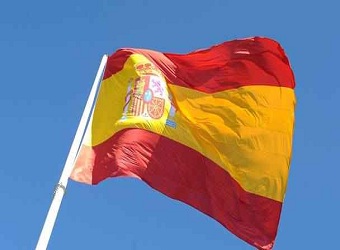Spain’s state prosecutor has called for rebellion, sedition, and embezzlement charges to be brought against Catalonia’s leaders.
Attorney General Jose Manuael Maza called for the charges Monday, according to Reuters, to be brought against the region’s secessionist leaders including former President Carles Puigdemont, his deputy Oriol Junqueras, the Catalan government and members of parliament, including Speaker Carme Forcadell.
As well as the charges of rebellion, which carries a maximum sentence of 30 years in prison, the prosecutor also accused the region’s leaders of breaching the Spanish constitution.
The request will now be considered by a judge and Maza has called for the Catalan leaders to testify.
This new development comes as Carles Puigdemont was deprived of power following the Spanish region’s declaration of independence Friday. This follows a month of escalating tensions with the national government in Madrid.
Spain’s index of top stocks, the IBEX 35, surged more than 2.5 percent Monday after a weekend poll suggested newly announced elections would see the separatist movement lose its majority.
Spain’s government has assumed direct control of the wealthy northeastern region and has terminated the executive roles of Puigdemont and his cabinet, calling a snap election for December 21.
Puigdemont and other pro-independence officials remained defiant over the weekend, saying that they did not recognize Spain’s authority and that only the people of Catalonia could dismiss them.
Now Puigdemont and his colleagues face possible arrest. Maza said last week that he would be calling on the local police force, the Mossos d’Esquadra, to detain Puigdemont and that if local police did not carry out the order, national police would do so.
Belgium responded to the move saying it could grant Puigdemont political asylum with the country’s migration minister questioning to what extent Puigdemont would get a fair trial.
Meanwhile, hundreds of thousands of protesters filled the streets of Barcelona Sunday, in one of the largest pro-unity marches since the crisis began on October 1 following a symbolic referendum on independence which was deemed illegal by the Spanish government.
Spain’s Foreign Minister Alfonso Dastis told the AP news agency that Puigdemont could “theoretically” run in the December election “if he is not put in jail at that time.”
There is now confusion over the whereabouts of the Catalan leadership. Around midday Monday, Spanish media reported that Puigdemont and several of his colleagues could now be in the Belgian capital, Brussels, although reports were unconfirmed.
On Monday morning, Puigdemont had prompted speculation over his location having posted an image on his Instagram account of the inside of Barcelona’s Palau de la Generalitat, Catalonia’s government building. It was unknown if the photo was taken Monday, however, and La Vanguardia newspaper reported that Puigdemont had not attended the palace.
Another Catalan minister Josep Rull also tweeted a photo of himself in his office although La Vanguardia reported that two local police officers had warned Rull to leave.
Amid the confusion of Spain’s attempts to gain control of Catalonia and apparent defiance by some pro-separatist Catalan officials, Alfred Bosch, a member of the European Parliament for pro-independence party Republican Left of Catalonia, told CNBC Monday that, on the third day of the proclaimed Catalan republic, “things are getting back to normal.”
“Of course, you can’t expect changes overnight. Life just goes on, business as usual and we will try to build the Catalan republic, starting with this declaration … This is a slow process, diplomacy tends to be slow and we’ll wait to see how things pan out,” he said.
Bosch said he had no fear of being arrested, a sentiment echoed by deposed deputy president Oriol Junqueras when asked by CNBC Monday if he was afraid he could go to prison.
It’s uncertain how far Spain will go in punishing the popular leader with the pro-separatist movement still commanding considerable support.
A Metroscopia poll for Spain’s El Pais newspaper Sunday suggested that 52 percent of Catalans were in favor of the dissolution of the regional parliament and holding new elections, compared to 43 percent who were against such a move.
Toni Timoner, U.K. spokesman for Spain’s ruling Partido Popular, told CNBC Monday that the Spanish government had public support.
“Since there was the suspension of the government of Catalonia, everything indicates the return to normalcy over the next few days. On top of that we had the demonstrations yesterday which show there is an ample majority for the steps that the government of Spain is taking,” he said.
Source: CNBC


